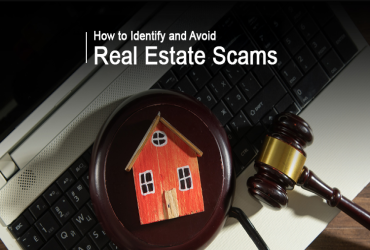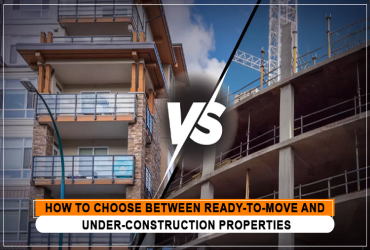
Real estate transactions, whether buying, selling, or renting, often involve significant financial commitments. Unfortunately, these dealings' complexity and high stakes make them a prime target for fraudsters. Falling victim to a real estate scam can result in devastating financial losses and emotional distress. This blog will guide you in identifying common real estate scams and taking proactive steps to avoid them.
Understanding Real Estate Scams is so Common?
High Financial Stakes: Real estate transactions typically involve large sums of money.
Complex Process: The intricate nature of property dealings can confuse buyers and sellers, making it easier for scammers to exploit loopholes.
Increased Online Activity: The growing reliance on online platforms for property transactions has created new opportunities for cyber criminals.
Common Types of Real Estate Scams
1. Fake Listings
Scammers post attractive rental or sale listings for properties they don’t own or that don’t exist. These listings often feature below-market prices to lure victims. Once a deposit is paid, the scammer disappears.
-
The price is unrealistically low.
-
The landlord avoids in-person meetings or property tours.
-
Payment is requested before signing any agreement.
2. Title Fraud
In this scam, fraudsters forge documents to transfer property ownership without the owner’s knowledge. They may sell the property to take out loans against it.
-
Unexplained changes in property records.
-
Receiving unfamiliar bills or foreclosure notices.
3. Escrow Wire Fraud
Scammers impersonate legitimate title companies or escrow agents and provide fake instructions for wiring funds. Victims unknowingly transfer large sums to fraudulent accounts.
-
Sudden changes in wire instructions.
-
Emails with slight misspellings in addresses or domain names.
4. Overpayment Scams
A buyer sends a check exceeding the agreed amount and requests the excess be refunded. Later, the check bounces, leaving the seller at a loss.
-
Overpayment requests with urgency.
-
Payments were made via suspicious checks.
How to Identify Real Estate Scams
Recognizing the warning signs early can save you from becoming a victim of fraud. Here are some warnings:
|
The Prices are too Good to be True |
Unrealistically low prices are often bait used by scammers. |
|
High-Pressure Tactics |
Fraudsters create urgency, pushing you to act quickly without due diligence. |
|
Unusual Payment Requests |
Demands for wire transfers or cash payments are suspicious. |
|
Lack of Documentation |
Missing or incomplete contracts and agreements should raise alarms. |
|
Unlicensed Agents or Companies |
Verify credentials with local regulatory bodies before proceeding with any transaction. |
|
Poor Communication |
Scammers often avoid face-to-face meetings and rely on vague communication methods like email or phone calls only. |
|
Property Unavailable for Inspection |
Refusal to allow property tours is a major alert. |
Steps to Avoid Real Estate Scams
1. Conduct Thorough Research
Before engaging in any transaction:
-
Verify the legitimacy of the agent or company through official registries.
-
Cross-check property details with public records.
2. Insist on Written Agreements
Never process without a sign that clearly outlines all terms and conditions.
3. Verify Payment Instructions
Always confirm wire transfer details directly with your agent or title company using official contact information.
4. Inspect Properties in Person
Avoid committing to any deal without physically inspecting the property or sending a trusted representative.
Conclusion
Real estate scams are becoming increasingly sophisticated, but staying informed and vigilant can help you avoid falling victim. Always approach transactions with caution, verify all details independently, and trust your instincts if something feels off. By taking these precautions, you can protect yourself from financial loss and ensure that your real estate dealings are secure and legitimate.




3 Comments